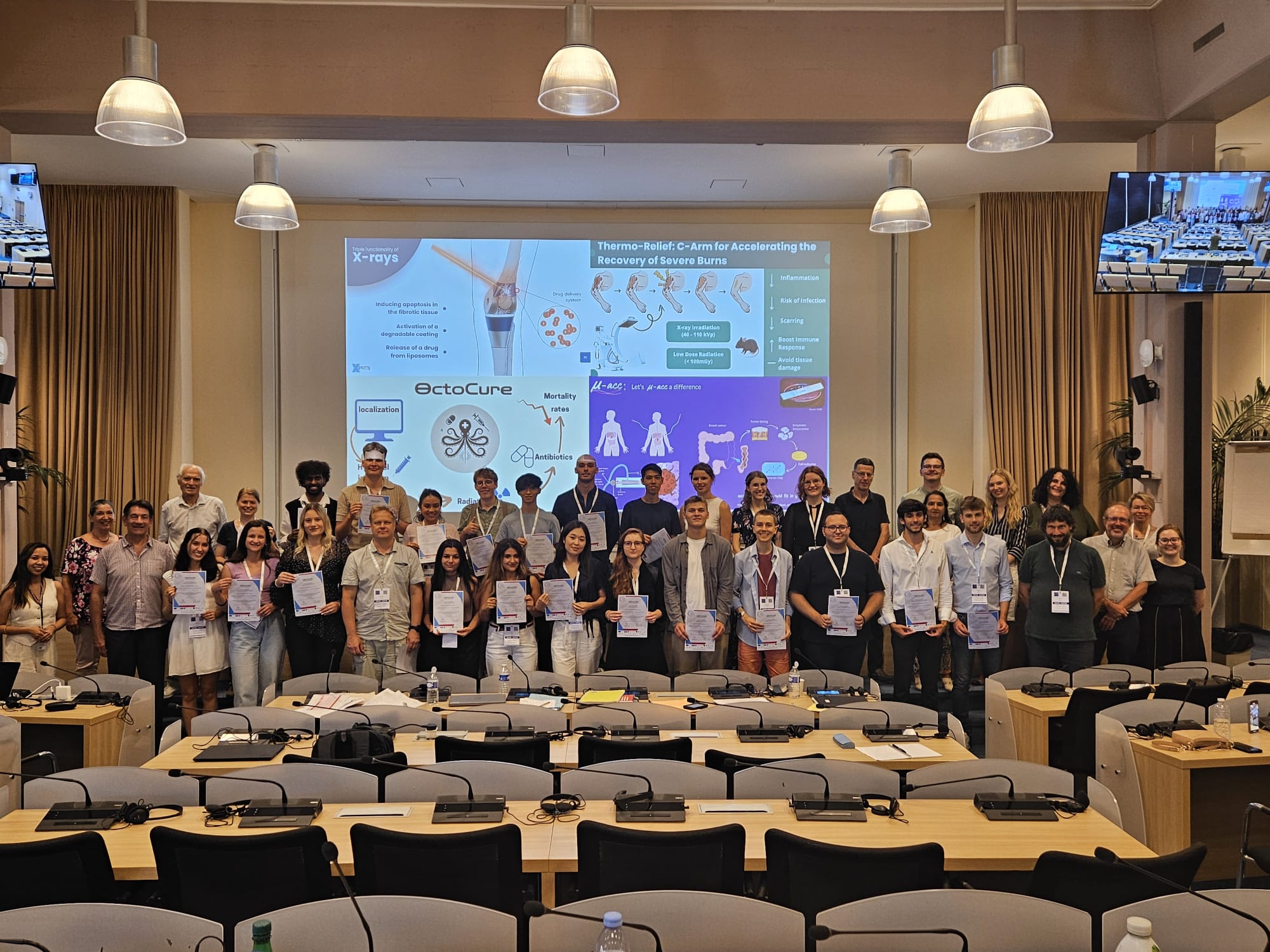Students from around the world have pitched four innovative ideas to use particle accelerators to solve some of the biggest health issues today as part of I.FAST’s third 10-day Challenge Based Innovation (CBI) event.
The twenty-four students, divided into four teams, spent nine days learning about accelerators and preparing their projects at the European Scientific Institute (ESI) in Archamps, near Geneva, before presenting their projects to a panel of esteemed judges at CERN on 1 August, which included CERN’s director for accelerators and technology, Mike Lamont.
The winning team, called X-ray Men, pitched a new approach to treating prosthesis-induced arthrofibrosis of the knee, a condition that can affect knee replacement patients and limits joint motion, sometimes leading to early arthritis, muscle weakness and pain.
The team’s solution focused on inducing apoptosis – a process to eliminate unwanted cells – in the fibrotic tissue surrounding the implant through targeted X-ray radiation using existing linear accelerator (LINAC) technology. The team also came up with a multi-layered coating for the orthopedic implant that is sensitive to radiation, allowing a controlled release of anti-inflammatory medication when exposed to x-rays.
While the winning team was rewarded for their ambition and detailed study, the three other participating teams also received plaudits from the judging panel. Their projects were based on:
● Using a sophisticated low-dose X-ray therapy device to treat severe burns, reducing inflammation and scarring, and weakening bacteria.
● Using radiotherapy to reduce antibiotic resistance in bacteria to optimise the treatment of diseases such as Tuberculosis.
● A pocket-sized, 1cm-long microchip accelerator that uses compact semiconductor technology to precisely irradiate cancerous tumours
Nicolas Delerue, accelerator specialist and coordinator of the CBI, praised the students for their hard work and dedication to making strong proposals. “Students have a fresh look on problems. They can think out of the box and they are very enthusiastic,” he said. “During this year's CBI they all worked hard on their ideas, challenging themselves, but also collaborating between teams. The ideas they proposed are interesting and I find that very inspiring!”

The four student teams were multidisciplinary and made up of physics, engineering, chemistry, life science and medical students, with each team composed of three male and female students to create a diverse working environment.
This variety within the teams was greatly appreciated by the participating students. “The most rewarding part was the opportunity to meet and collaborate with extraordinary young people from various fields,” said Dr. Mila Mladenova, a recently graduated Doctor of Medicine from Ss. Cyril and Methodius University in Skopje and a member of the winning team.
“The programme has inspired me to pursue further research in new technologies and to seek out multidisciplinary collaborations in my future career,” she added. “The skills and knowledge I gained undoubtedly enhanced my ability to innovate and with that, as a young medical doctor, ultimately improve patient care.”
For her teammate Victoria Lopez Martinez, a medical biotechnology bachelor's student at Université Grenoble Alpes, the CBI opened her eyes to the potential of accelerator technology to tackle wider issues.
“I initially had only a basic understanding of particle accelerators and their use in medical imaging. Through the seminars and visits to CERN, I was able to grasp the principles and different emerging technologies used not only in the medical sector but in industry in general. For example, in healthcare, I learned how these technologies can transform medical care, from early disease diagnosis to personalised treatments and improved patient data management,” she said.
Both students from the winning team hope to continue working on their prosthesis project going forward.
This CBI, organised through I.FAST’s communication and outreach work package, follows two previous editions that focused on accelerators for the environment and which resulted in very successful student proposals.
The I.FAST project received funding from the European Commission’s Horizon 2020 Research and Innovation programme under Grant Agreement No. 101004730. I.FAST aims to enhance innovation in the particle accelerator community, mapping out and facilitating the development of breakthrough technologies common to multiple accelerator platforms. Within CERN, the project is coordinated by the EU Projects Office.
